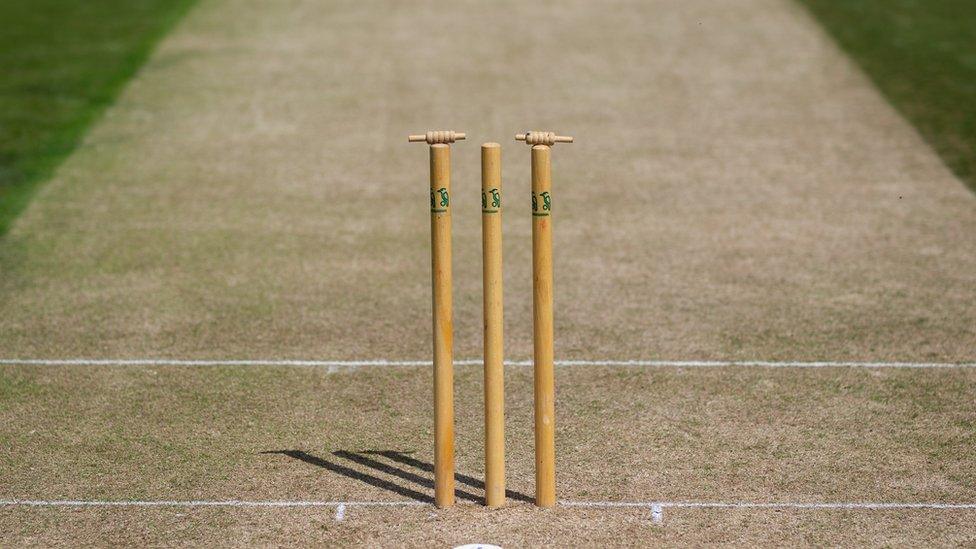Discrimination in cricket: Sport must change says new report
- Published
- comments

The report says complaints of discrimination were often ignored by authorities within the sport.
English and Welsh cricket has been told to make big changes after a new report found the sport is racist and sexist.
Discrimination was found to be "widespread" across all levels of the game.
The report has been written by a group of people called the Independent Commission for Equity in Cricket (ICEC), following a two-year investigation into the sport.
The England and Wales Cricket Board (ECB) has been told to apologise, and they have promised to "use this moment to reset cricket."
Why was the report needed?
Azeem Rafiq told MPs that cricket was 'institutionally racist', sparking the need for investigations into wider problems
In 2021, a former player Azeem Rafiq reported being the victim of racism whilst playing for Yorkshire Cricket Club.
He told a group of MPs at the time that his mental health was strongly affected and that he "lost his career" to racism.
He also said he had no doubt that English cricket was "institutionally" racist, which meant it was a problem in the sport across the country, not just in one club.
Find out what children in Yorkshire think about the cricket scandal - November 2021
The ICEC asked the public for evidence of discrimination within the sport and in November 2021, they received 4,156 responses. In March 2022, a call for written evidence resulted in more than 150 responses.
Those reports were all looked into and evidence was given by a number of high profile players including England men's Test captain Ben Stokes and women's captain Heather Knight.
What is needed now is leadership. I very much hope that the recommendations we make in this report will be adopted and driven forward by the ECB and all others in leadership positions.
What does the report say?
The 317-page report called Holding Up A Mirror To Cricket, says that "structural and institutional racism" continues to exist within the game.
The chair of the ICEC, Cindy Butts said: "There remains a stark reality that cricket is not a 'game for everyone' and it is absolutely essential that the work required to achieve that ambition must begin immediately,"
It found that women are treated with less importance than men at all levels of the sport, showing that sexism is also widespread, and goes onto say that the ECB must develop a plan to bring more black players and staff through the system.
The report It also says that people from different social backgrounds are not made to feel welcome when playing the sport and that many who face discrimination don't always report it because they don't feel they will be listened to.
What happens now?
Richard Thompson has been the chairman of the ECB - the England and Wales Cricket Board - since 2022
The report praised the ECB for being "brave" enough to order the report and open itself up to the investigation.
ECB chair Richard Thompson offered an "unreserved" apology.
"Cricket should be a game for everyone, and we know that this has not always been the case," he said. "Powerful conclusions within the report also highlight that for too long women and black people were neglected. We are truly sorry for this."
The report has suggested ways to improve the systems, including making sure England women's and men's teams receive the same match fee.
They have also suggested reducing the cost of playing cricket at grassroots level so more people from diverse backgrounds have the opportunity to play the sport.
